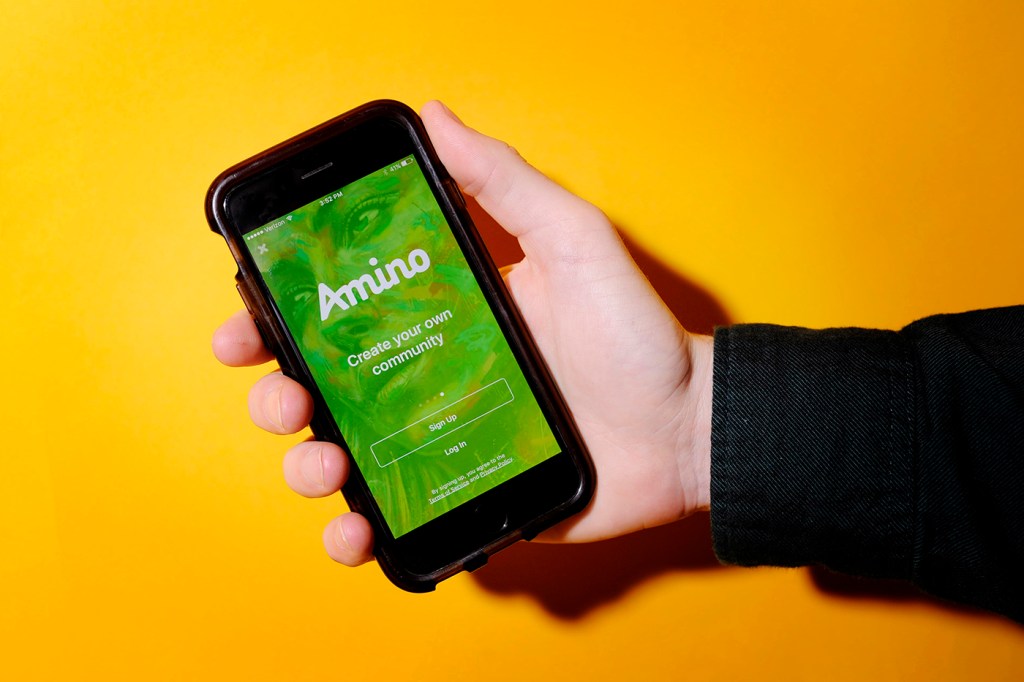Alumni behind former IDEA venture receive $19M to take business to next level

Ben Anderson thinks big.
He is the co-founder of Amino, a mobile-based social service aimed at connecting users with niche interests, and he won’t rest until his product is in the hands of every single smartphone-wielding customer in the world.
“Our vision is to create an engaging community for every imaginable topic,” Anderson says. “Whenever you discover a new passion, we want you to turn to Amino.”
Anderson, AMD’12, and his business partner Yin Wang, PhD’11, launched the startup in 2011 and began building the brand in 2013. Its 250 iPhone and Android apps—ranging from the Anime amino to the Minecraft amino—have been downloaded more than 13 million times by users in more than 50 countries worldwide.
The Dr. Who amino is the world’s largest mobile social network for super fans of the popular sci-fi program, giving users a chance to discuss Daleks, Cybermen, and the TARDIS with their fellow Whovians. And the platform’s newest feature—the Amino creator—has enabled users to custom design more than 250,000 unique communities of their own, from veganism to K-pop to LGBT+.
“The thing that brings people to Amino is a fundamental human desire to find what they love.”
— Ben Anderson, co-founder of Amino
According to Anderson, the average Amino user spends more than 60 minutes per day on the platform, chatting, blogging, and geeking out with likeminded people worldwide. That’s more than Facebook, the world’s most popular social network, where users spend an average of 50 minutes per day.
“When you use Amino, you are surrounded by thousands of people who love a given topic as much as you do,” Anderson says. “It’s that feeling of community that drives people to spend so much time with the apps.”
Investors have taken note of Amino’s widespread appeal, particularly among the 16-to-24-year-old demographic. In mid-December, Amino received $19 million in Series B funding from GV, Venrock, Union Square Ventures, Time Warner Investments, Goodwater Capital, and Box Group—money that will be used to take the startup to the next level.
To date, Amino has raised $28 million. The majority of the new capital will be used to launch thousands of new apps and expand the brand’s international pull, with a particular focus on upping the number of languages in which Amino is available. Amino apps currently come in five languages—English, Spanish, Russian, Arabic, and Portuguese.
“Investors believe in our vision that Amino could be in the hands of everyone in the world one day,” says Anderson, who was recently named to Forbes’ 30 Under 30 Class of 2017, a prestigious list comprising 600 of the nation’s brightest young entrepreneurs, breakout talents, and change agents in 20 different sectors. “The thing that brings people to Amino is a fundamental human desire to find what they love.”

Ben Anderson, left, and Yin Wang co-founded Amino in 2011 and began building the brand in 2013. Photo by Meryl Natow/Amino
Anderson’s ascent to the top of the startup mountain began at Northeastern in 2010, when he connected with IDEA, the university’s student-run venture accelerator. Over the next three years, IDEA awarded Anderson $20,000 in gap funding, hooked him up with an accountant, and paved the way for his meeting with Amino’s initial angel investor, crucial first steps on his increasingly impressive entrepreneurial journey.
Over the past two years, Amino has grown exponentially, expanding from a small team of four to a bustling team of 30. The company now keeps two offices—one in New York’s Flatiron District, overseen by Anderson, and the other in Shanghai, run by Wang. And it frequently employs Northeastern co-op students, many of whom have worked to market the brand.
It’s just one way in which Anderson is giving back to the community that inspired him to become an entrepreneur in the first place. “I got my enthusiasm for entrepreneurship from Northeastern,” says Anderson, whose co-op at WHERE, a Boston-based startup acquired by PayPal during his 2011 experiential learning opportunity, led him to create his first company, a marketing venture called HypeGenius. “In a lot of ways, I see the university as the root of Amino.”
Right now, Anderson is working to monetize Amino. One potential strategy is to build tools that would allow the currently unpaid community curators to sell digital goods to users while taking a cut of the revenue for themselves.
“We have some distance to go before we get there,” says Anderson, “but we have an ambitious vision for this company.”





